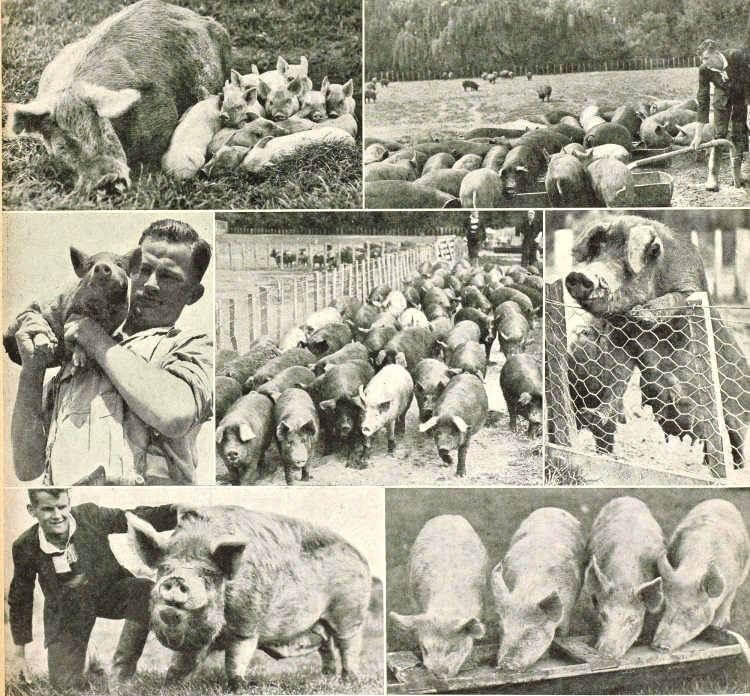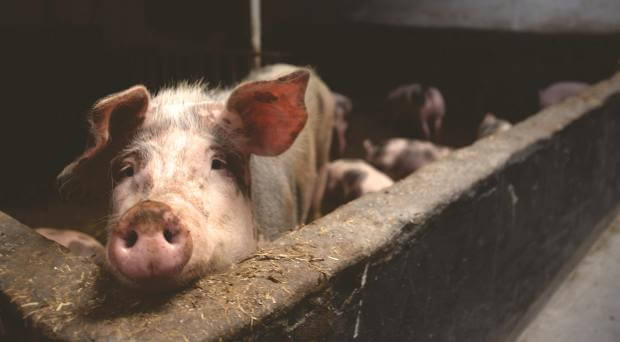The Punga Maru Stud, a splendidly equipped pig farm close to Te Awamutu comprised 75 acres and was situated in a well-sheltered and well-drained valley in a bend of the Mangapiko stream.
Remarkable increases had recently occurred in exports of pig meat. These increases were outstanding, and it was doubtful whether any other primary industry had ever shown such a meteoric rise from an insignificant industry. First-class bacon pigs were produced from four breeds at the stud —Tamworth, Berkshire, Large White and Devon—or by crossing selected members of these breeds.

Piggeries, like these at Te Awamutu and Pukeroro (Tamahere) were important branch of New Zealand’s wartime rural activity.
A ‘hard-up’ dance was held in the Kihikihi Town Hall and attended by visitors from all parts of the neighbourhood. Costumes included a dress of sack cloth and a dress made from brown paper. Mr Barnett fined various people for not being in hard-up apparel. He was then himself heavily fined by Mr McGhie for daring to fine other people. A feature of the dance programme was the ‘Air Raid Waltz’ when the lights were put out and partners changed. Delightful music was supplied by Mrs Holmes, and extras contributed by Miss Anderson (piano) and Mr Mathers (piano accordion). In keeping with the hard-up theme a novel and satisfactory supper of polonies and bread and butter was served.
A most enjoyable few hours was spent at the Pirongia school grounds when a large crowd assembled to witness an amusing fancy dress basketball match. An exciting and entertaining hour of play, followed by afternoon tea was the order of the day. Mr ‘Bill’ Bell was attired as a bridesmaid, and was coy and much admired and Mr Reg Bell impressed greatly as a Viking. Male players also dressed as a housemaid, a chorus girl, an old English lady and a modern flapper. The referee, Miss Girlie Bell, who was attired in a very fitting outfit, caused quite a lot of laughter. The afternoon was in aid of Red Cross Funds.
A farmer, who owned a considerable area of swamp land in the neighbourhood of Ōhaupō, reported that the spread of blackberry was becoming such a menace that he was seriously considering abandoning the whole place. He added that he had tried flame-throwers, poisoning, and grubbing, but as fast as he cleared an acre or 200 new plants appeared.
Phenomenal rainfall caused a blockage of the intake at the head works of the Te Awamutu water supply and there was a noticeable falling-off in water pressure. Some residences on the high levels of the town were without supply. Householders on the lower levels were not completely without water but pressure was very low.
Rumours that there had been a serious burst in the mains, and memories of complete cutting-off from some years ago, when water was hawked about the town, prompted residents to fill every available receptacle. After repairs had been made normal supply was restored.

Pigs. Photo: Matthias Zomer, pexels.com









